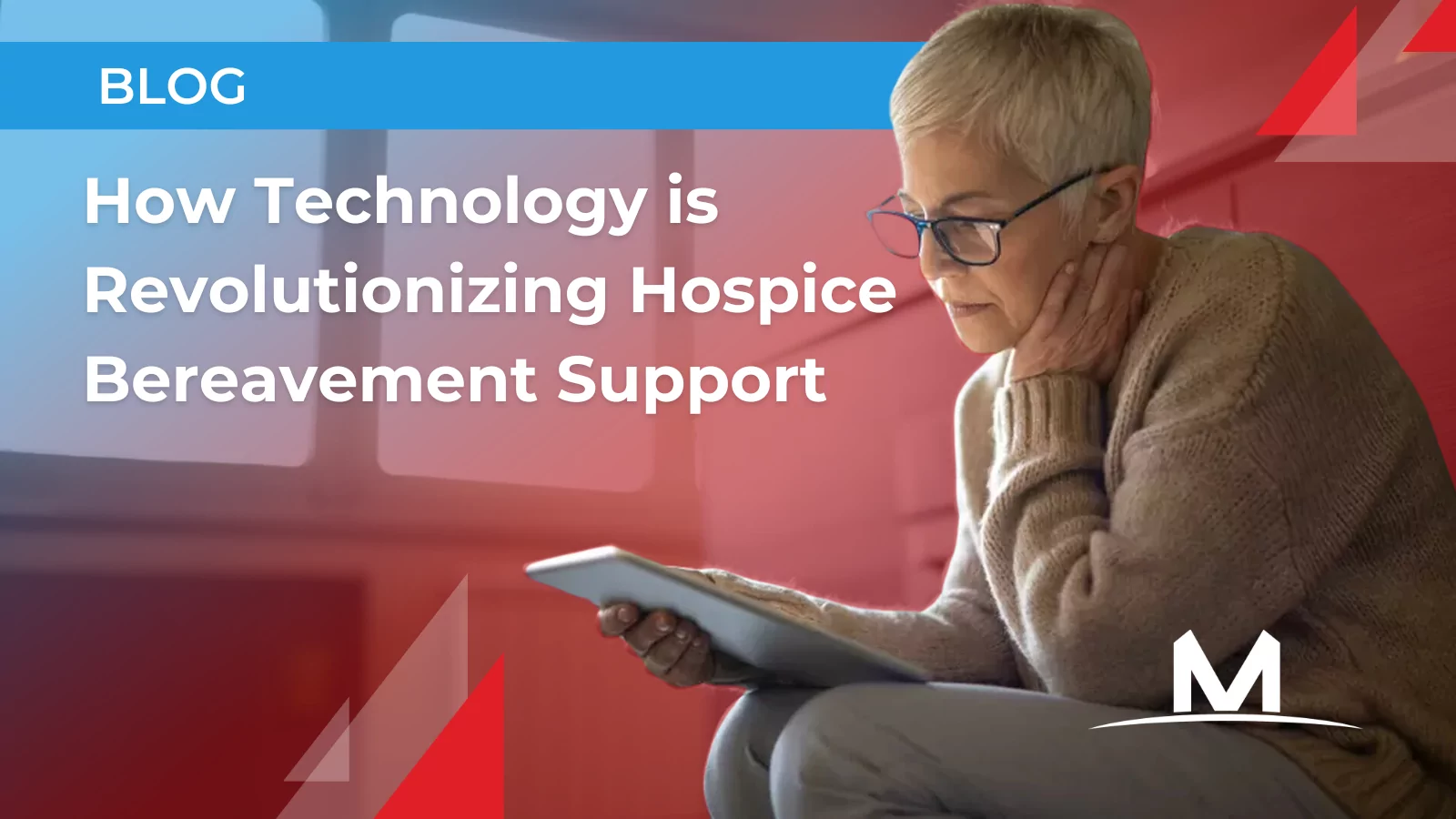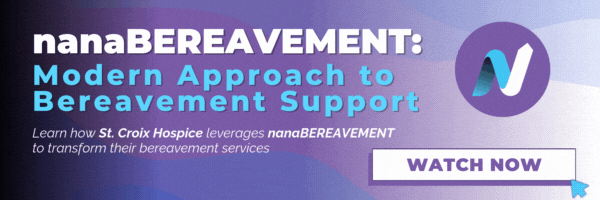How is Technology Revolutionizing Hospice Bereavement Support

Author: Shea Swenson
Posted: December 3, 2024
Transforming Grief Support: A Success Story with St. Croix Hospice - LISTEN NOW
Grief is an inevitable part of life, but the ways we support individuals and their families during this time are evolving. As technology becomes more integrated into the world of healthcare, new avenues of grief support and quality care are emerging to provide accessible, personalized, and faster bereavement support. Here at Maxwell Healthcare Associates, we strive to improve care quality in the home health and hospice sector by adopting new tech-enabled care strategies. In this blog, we will explore how bereavement care is transforming in the modern world and how new cutting-edge technology is revolutionizing bereavement support for individuals and families.
Understanding Bereavement Care
Bereavement is “the period of loss during which you experience grief”1. While bereavement is a personal experience for every individual, it is also a crucial practice within the healthcare industry that can range from support groups, memorial services, informational and educational resources, and other support systems during end-of-life care for grieving families. As a part of Medicare hospice benefits, families of hospice patients – or those who are in the immediate circle – have access to bereavement care for 13 months following the death of their loved one.1 Traditionally, in the hospice sector, this care provides grief information and support through cards, letters, and other mailings.2 Recently, hospice bereavement support has modernized through technology and social media-based support systems. As these new support systems become more widely available to hospices and home health agencies, deeper connections can form between providers, patients, and families during life’s challenging times. These changes also help to alleviate some of the challenges that come with traditional bereavement and grief support.
Challenges in Bereavement Care
In an industry that rapidly embraces new technologies, the bereavement care process can be modernized while still preserving its deeply personal and compassionate nature, giving families more tailored and meaningful support during their time of loss. It’s important to remember that bereavement care traditionally revolves around written support systems and information. This system impacts the amount of support provided to grieving individuals due to its extensive effort and time management for the hospice or home health agency. Specifically, a study from Clinical Psychology and Psychotherapy showed that 1 in 5 participants had not used bereavement care services despite reporting elevated pathological grief levels and/or expressing care needs.3 Additionally, the two most common barriers to grief support of a group were that bereaved people found it too difficult to talk about the loss, or that it was too difficult to find the support they needed.3 With such isolating barriers, individuals and families may struggle even more so during a time of need— when they should be receiving quality support, education, and outlets for their loss. By modernizing agencies' bereavement process, more people can access a variety of support systems, make meaningful connections with the caregivers and agency, and receive quality tools and resources that cater to their needs.
A Modern Approach to Bereavement Care
In today’s digital age, there are many different support systems, education tools, and resources available to those struggling with loss. So how can hospice caregivers and agencies ensure the success of a modernized approach to bereavement?
One key factor is the openness to innovative online services, as greater openness to these services is linked to increased acceptability of online treatment.3 This willingness to adapt to a modern bereavement approach can help fill the gap of access to support services – providing support to all during a time of need. Some modern bereavement and grief support systems include:
- Virtual counseling
- Bereavement support apps
- Teletherapy
- Digital memorials and tribute pages
- AI chatbots and Grief companions
- Social media grief platforms/online support groups
- Data-driven, personalized bereavement plans
- Online/virtual funerals and memorials
These advancements help revolutionize hospice bereavement support by improving access to bereavement services, catering support to individuals’ needs, and streamlining hospice agency operations.
MHA’s Approach to Modern Hospice Bereavement Support
MHA aims to enhance the bereavement support process, provide personalized care for hospice agencies, and improve communication with families impacted by hospice care. Our tech-enabled solution – nanaBEREAVEMENT – helps modernize this process by replacing traditional letters with text messages to those that are grieving.
Not only does nanaBEREAVEMENT increase support with personalized messages based on risk assessment but also yields cost savings by streamlining the communication process for the agency. nanaBEREAVEMENT revolutionizes the hospice bereavement process by enhancing the quality of care and effective communication between the agency and the families.
MHA is revolutionizing bereavement support for agencies and families in times of need with nanaBEREAVEMENT. Curious to learn how we can modernize your agency’s bereavement support processes? Contact us at [email protected] or visit us at www.maxwellhca.com today!
Resources:
-
National Hospice and Palliative Care Organization. "Bereavement Care." CaringInfo.org. Accessed October 3, 2024. https://www.caringinfo.org/types-of-care/bereavement-care.
-
Mayo Clinic. "Bereavement: Coping with Grief After a Loss." Mayo Clinic Hospice. Accessed October 3, 2024. https://www.mayoclinic.org/departments-centers/hospice/sections/bereavement/gnc-20481748.
-
Maccallum, Fiona, Amanda J. Mcgraw, Jenna Reilly, and Victoria Scarf. "The Effect of Sudden and Violent Bereavement on Grief Experiences in Young Adults." Clinical Psychology & Psychotherapy 31, no. 2 (2024): 524-536. https://doi.org/10.1002/cpp.2544.

